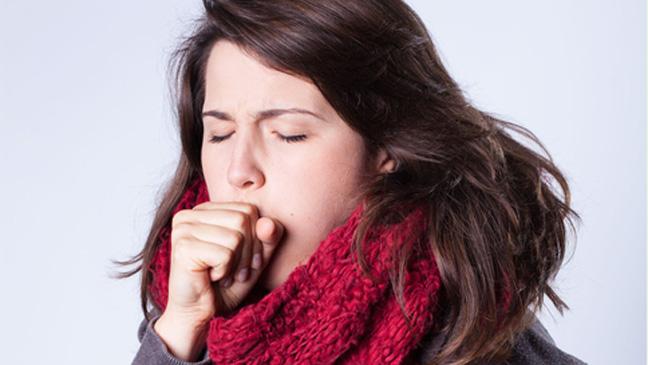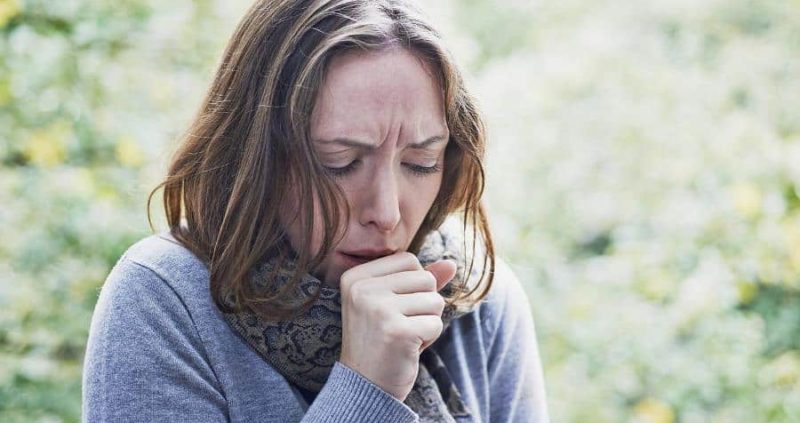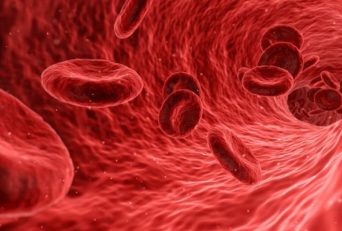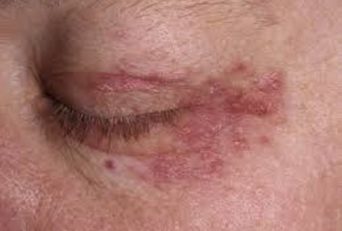Coughing up brown mucus or thick dark brown phlegm is usually an indication of lungs infection from smoking or inhalation of dust and pollutants. It tends to occur in the morning.
Brown mucus can be quite alarming, but it is not associated with a severe underlying condition in all the cases. However, it always recommended consulting the physician to identify and treat the root problem.
Keep on reading to get to know causes, treatment, and home remedies of coughing up brown mucus.
Table of Contents
Causes Of Coughing Thick Brown Mucus

Various factors trigger the coughing up of brown mucus. Habits such as smoking, an improper diet, or inhalations of harmful substances are the most common ones.
The causes of secretion of brown phlegm include:
1.Smoking Of Cigarette
The regular inhalation of tobacco smoke implies the addition of tar, resins, chemicals, and many other unwanted substances into the body.
These end up accumulating in the lungs, and when a cough occurs, it does with the secretion of a brown colored phlegm. This indicates that the system is trying to remove the accumulated dirt from the lungs through the throat.
It usually occurs in the morning hours, and it intensifies when the smoker is trying to quit the habit because as the lungs use this period to cleanse the accumulated buildup of toxins.
2.Certain Foods & Beverages
The ingestion of particular food items can give a brownish appearance to the natural mucus present in the respiratory tract. These items include coffee, tea, dark carbonated drinks, chocolate, red wine, and excessive consumption of garlic.
3. Alcohol
Among beverages, the use of alcohol can particularly trigger throat, lungs, and respiratory infections. The excessive ingestion of alcohol in any form can trigger the secretion of brownish phlegm.
4. Acid Reflux
The coughing up of brown mucus can also be triggered by acid reflux. This condition occurs when the acids that are naturally produced by the stomach move into the esophagus, causing a burning sensation in the area and its surroundings.
The excessive ingestion of coffee, tea, chocolate, red wine, spicy food, citrus, muscle relaxing medications, or large meals can cause acid reflux, and, in turn, the secretion of brown mucus with a cough.
5.Polluted Environment
The pollutants present in the surroundings include dust, dirt, and chemicals. These substances can accumulate in the respiratory tracts, especially the throat and lungs.
The protective lining of mucus that is present in them has the role of filtering the breathed air. Hence the buildup of pollutants is stuck to it and makes it acquire a brown color when secreted.
6.Nasal Polyps
These are benign, round swellings inside the nose or sinuses. Although they are linked to asthma and allergies, the polyps can be asymptomatic if they are small enough.
If they grow in size, they may block the drainage from the sinuses and cause mucus accumulation in them. This irritates the nasal cavity and the sinuses, and it may lead to nose bleeding. The accumulated mucus hence becomes the color of brownish dry blood.
7.Lungs Infection
When harmful bacteria, toxic, or foreign substances are trapped in the nasal cavity or respiratory tracts, a respiratory infection can take place. This leads to the excessive secretion of mucus and its coloration.
8.Strep Throat
This condition is defined as the inflammation and pain in the throat caused by a bacterial infection. The triggering agent belongs to the A Streptococcus bacteria group.
Strep throats commonly cause throat pain, sneezing, and coughing. In some cases, the coughing may be associated with brown phlegm.
9. Tonsillectomy surgery
The surgical removal of the infected tonsils may lead to certain post-surgical symptoms. These include a sore throat, pain in the neck, ears, and jaw. Sometimes it also causes the coughing up of brown mucus.
10.Lung cancer
A cancerous development in the lungs may or may not present symptoms, especially in the initial stages. However, a consistent or an aggravating cough accompanied with the heavy secretion of mucus may be an indication of it. The mucus can have a rusty or brown color.
11.Other underlying causes
The coughing up of brown mucus can often be caused by internal infections of the nasal cavities, sinuses, or lungs. Mucus is present in these areas of the body to trap the entering bacteria, viruses, and foreign substances and prevent them from their further entry. This makes it acquire a brown color.
Other causes can be chronic bronchitis, emphysema, and lung cancer.For this reason, it is advisable that a doctor checks the condition of a consistent cough associated with brown mucus and identifies and treats the underlying causes.
Coughing Up Brown Mucus After Quitting Smoking
It is well known that smoking may lead to the secretion of thick dark brown phlegm. But why does it seem like coughing up mucus gets even worse after quitting it? Once you have stopped inhaling the toxic substances, the body is supposed to become cleaner, and that is exactly what is happening.
It turns out that when the habit of smoking is stopped, the lungs use this opportunity to clean themselves from the accumulated dirt.
Coughing up brown mucus after quitting smoking is a withdrawal symptom that indicates the cleanse and repair of the respiratory tracts from the damage that tobacco did.
While smoking, the hair-like cilia of the lungs become numb due to the contact with the harsh substances and stop filtering out the impurities that enter the body through the respiratory tracts.Thus, there is a buildup of impurities inside them.
But once you quit smoking, the cilia can repair themselves and get back to work. This results in the expulsion of all the excessive, accumulated impurities in the form of a thick, brownish phlegm.
The condition indicates the repair and cleanses of the respiratory tract. It can last from weeks to months depending on the size of the accumulation, but it will eventually improve by itself.
ASSOCIATED SYMPTOMS
Coughing up brown mucus can occur along with other symptoms depending on the causal factors.
These include:
- Throat soreness: There can be the pain, irritation, and discomfort in the throat.
- Breathlessness: Excessive coughing can lead to the sensation of shortness of breath.
- Chest pain can be caused by severe and consistent coughing.
- Secretion of dark brown mucus clots from the lungs due to a high accumulation of toxins.
- Nose bleeding can be triggered by inflammation of the respiratory tracts. This may lead to secretion of mucus that has brown spots or specks
Greenish Brown Mucus
Sometimes, brown mucus may acquire a greenish tinge. This happens due to the high content of inflammatory cells like leukocytes in it. It is triggered by inflammation and irritation of the respiratory tracts, asthma, and infections caused by bacteria or viruses.
The mucus tends to contain pus from the association of the white blood cells with bacteria. This indicates a severe bacterial infection.
The secretion of greenish brown mucus is often associated with conditions like bacterial pneumonia, cystic fibrosis, atelectasis, acute or chronic bronchitis.
Home Remedies To Get Rid Of Coughing Up Brown Mucus (Phlegm)

Apart from prescribed and over the counter medications, mucus secretion from the throat can also be relieved by a large number of home remedies.
These will improve the underlying condition and its symptoms in a natural way.
The home remedies for thick, dark brown phlegm include:
1. Fluid intake:
Drinking plenty of fluids, especially water, can be extremely beneficial for the throat related conditions. Ensure that the water is warm and drink it several times a day. It loosens the mucus and makes it easier to be coughed out.
2. Consumption of fruits:
Fruits have a high content in several vitamins that can boost the healing from cold and cough in a natural way. Increase the intake of fruits and vegetables, especially the ones that are rich in vitamin C. These include oranges, limes, bell peppers, papaya, broccoli, strawberries, kiwi, mango, pineapple, cauliflower, etc.
3. Saltwater gargles:
Gargle with a natural solution made by adding a teaspoon of salt into lukewarm water. This will help in loosening the phlegm and clear the track of your throat. The continuous use of this remedy will also prevent the further accumulation of mucus in the throat.
4. Neti pot:
This is a device that is used to introduce saline solutions into one nostril and let it come out from the other nostril. This process is known as nasal irrigation, and it is used to cleanse the nasal passages from the accumulation of toxins and mucus.
5. Natural and herbal teas:
Teas made from herbal extracts can provide a soothing and calming effect to the body, especially the throat. Sip on a warm herbal tea to reduce the secretion of thick mucus.
6. Lemon tea:
An especially good tea for this condition is lemon tea. It has citric acid and it is loaded with antiseptic properties. It promotes an easy discharge of phlegm and soothes the throat, especially when combined with honey.
7. Steam inhalation:
Use the help of a steamer to breathe in the steam produced and clear up the nose, the throat, and the respiratory tracts. For a boosted effect, add mint leaves or eucalyptus leaves to the water.
8. Pepper and honey:
The therapeutic properties of these substances can help in relieving throat irritation and cough, as well as mucus secretion. To get their benefits, mix a small quantity of honey and white pepper and eat it.
You can also mix a spoonful of this mixture into warm water before drinking it. This mixture will provide instant relief and it should be thrice a day for a week for a complete recovery.
9. Golden seal:
This herb is popularly known to reduce the lungs congestion and soothe the irritation in them. Consult an herbalist before using it.
10. Ginger juice & honey:
Grind ginger to make its juice and add a teaspoon of honey into it. Mix it with hot water if required and drink it twice every day to heal the cough and the mucus discharge. The therapeutic properties of ginger can help in treating cold, cough, and soothe the respiratory system.
11. Basil leaves concoction:
Make a concoction by boiling fresh basil leaves along with black pepper and a pinch of crushed or ground ginger. Add a teaspoon of honey to this mixture before drinking it. It can be taken two to three times per day till the throat phlegm is loosened and the condition improves.
12. Milk & garlic:
Garlic can have the effect of a natural expectorant. Add a raw clove of it into a glass of warm milk and drink it. It will loosen the mucus and clear the respiratory tracts.
13. Garlic & lime:
Both of these ingredients have anti-inflammatory properties that make it a very beneficial remedy for clearing the phlegm from the respiratory tract. Squeeze out the juice from two lemons and add it to a cup of boiled water along with a garlic clove. Drink it with a pinch of salt and black pepper powder each for instant relief.
14. Lemon and onion:
The antimicrobial properties of these ingredients can make a very efficient remedy for the throat, cough, and mucus discharge.
To use it, grind a peeled onion and add lemon juice to it. Follow by adding this mixture into a cup of boiling water and let it continue boiling for three to four minutes more. Finally, add a teaspoon of honey and drink the mixture once it becomes lukewarm. Drink the mixture three times every day.
15. Chickpea powder:
Add two teaspoons of chickpea powder into a pan containing a teaspoon of oil. Fry it till it becomes brownish in color. Now add a teaspoon of honey and powdered almonds. Finally, add around three glasses of water and stir it gently.
Consume this concoction twice a day during five to six days to relive the discharge of mucus.
16. Chicken soup:
This beverage has anti-inflammatory properties that relieve coughing and phlegm discharge. It is especially good for the treatment of common colds, hydrating the air passages, and thinning the mucus for its easy discharge.
Prepare and drink chicken soup twice per day. Add garlic and ginger to it for an added benefit.
17. Grape juice:
These fruits are natural expectorants that help in relieving the throat and lungs. They unclog the throat letting out the accumulated phlegm.
Consume two teaspoons of grape juice with two teaspoons of honey thrice every day.
Treatments For Coughing Up Brown Mucus
There are numerous treatments for the coughing up of thick dark brown phlegm according to its different causes. The various treatment options include:
a. Decongestants like Sudafed are used when the cause of the brown mucus is a sinus infection or flu. They reduce the mucus production and make it drier.
b. Nasal sprays like Ipratropium bromide reduce the production of nasal secretions and mucus that can accumulate at the back of the throat, thus decreasing the cough and mucus secretion.
c. Expectorants like Guaifenesin are used in case of mucus discharge due to bronchitis or chest chills. They can help in loosening the phlegm and make its removal easier.
d. Antibiotics are prescribed by the doctor when a cough is caused by bacterial infections.
e. Therapeutic and aromatic inhalants like Olbas can help in decongesting the respiratory tract when inhaled.
f. Nasal drop or rinses like Sterimar help in relieving nose blockage and loosening the phlegm.
g. Cough suppressants are used when the patient wants to eliminate the coughing itself. A cough suppressing medicines include Pholcodine.
h. Antihistamines like promethazine and diphenhydramine are used to dry the secretions and reduce the mucus production from the respiratory tract. They are mainly used against allergic reactions.
i. Throat lozenges lessen the irritation and tingling sensation in the throat, as well as pain and coughing.
Treatment for coughing up brown phlegm from the lungs
The cure for mucus coming from the lungs is similar except for when it is caused by a pulmonary infection. The treatment options depend on the causal factor, and they include:
i. The use of nasal sprays or decongestants when the brown mucus has been triggered by flu, cold, or sinus infection.
ii. One can opt for expectorants to loosen up the phlegm and ease its removal in case of a chest chill and bronchitis.
iii. In case of bronchitis: The inflammation of the bronchial tubes calls for prescribed bronchodilators, pain relievers, and using a humidifier in your home. Antibiotics may be prescribed if the infection is caused by bacteria.
iv. In case of pneumonia, the treatment may be done by antibiotics in case of bacterial infections or with antiviral medicines in case of viral infections. It also includes pain relievers and hospitalization in extreme or sensitive cases.
v. In case of emphysema, which is associated with chest tightness and chronic cough, the treatment includes various options. These are bronchodilator drugs, inhaled steroids, and antibiotics in some cases.
They are usually accompanied by therapies like pulmonary rehabilitation, nutrition therapy, and supplemental oxygen. In extreme cases, surgical treatments like lung volume reduction and lung transplant might become necessary.
vi. In case of lung cancer, the treatment may consist of surgery, radiotherapy, chemotherapy, and targeted drug therapy.
TIPS – DO’S AND DON’TS WHILE COUGHING UP BROWN MUCUS
There are certain things that would improve the condition of coughing up brown mucus, and others that are better to avoid because they could worsen it.
Here is what is recommended to do versus what shouldn’t be done.
DO’s
- Keep your body hydrated the whole time. Avoid the feeling of thirst, as the dryness could just make the condition of the respiratory tracts worse.
- Consume warm and hot drinks and beverages to provide a soothing sensation to your throat and reduce the irritation.
- Use a humidifier to avoid dryness and its adverse effects on the body.
- Take the help of steam inhalers to promote the cleansing of the throat and prevent a growing buildup of mucus in it.
- Blow your nose regularly to expel the impurities and avoid the transfer of the mucus back into the deep respiratory tract.
- Seek urgent medical attention in case you notice streaks of blood in the phlegm, as this is frequently a symptom of a severe underlying condition like tuberculosis, bronchial infection, or lung cancer.
DON’Ts
- Do not swallow the phlegm back into the throat. This will increase the buildup and worsen the condition. Instead, spit out the phlegm on a tissue.
- Do not smoke or consume alcoholic drinks in excess. They are highly irritating substances for the body overall.
- Avoid ingesting cold drinks or food items as they can trigger mucus formation. Give preference to consuming warm and hot beverages and food to soothe the throat.
- Highly processed food products like dairies, sugar, or meat are unhealthy, and they should be especially avoided during abnormal health conditions. Do not consume them.
- Stay away from irritants present in the surrounding that could be inhaled by the body. These include household cleaners, paint fumes, chemicals, pollutants, pollen, etc. Do not expose yourself to them.
- Do not neglect or ignore your cough if it lasts for more than a week. Consult a doctor to obtain the appropriate medication or treatment that are required.
Coughing up brown mucus does not indicate a severe health disorder in most of the cases. It can even be easily cured with the help of home remedies. However, when these do not work and when the condition lasts for several days, the best option is to get it checked by a professional doctor.





